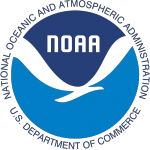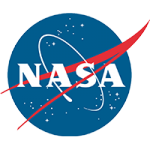The 2008 OCB Summer Science Workshop took place July 21-24, 2008 in Woods Hole, MA.
Climate sensitivity of ecosystem structure and associated impacts on biogeochemical cycles
Implications of climate variability and climate change for ocean biogeochemistry and benthic and pelagic ecosystems covering all trophic levels.
Carbon uptake and storage
Recent observational and modeling findings quantifying the magnitude and trends in ocean carbon fluxes and carbon storage.
Temporal trends in ecosystem variability
Application of ocean time-series data to characterize ecosystem response to varying climatic and biogeochemical boundary conditions. The session will include both modern and paleo-time-series in order to place the trends over the past century and future trends in a broader temporal context.
Each day we focus on one theme, which will include a morning plenary session, followed by afternoon breakout sessions on more detailed sub-topics within that theme, and then a late afternoon poster session. The purpose of the breakouts is to facilitate more detailed discussions on research priorities and opportunities within each theme. A set of near- and long-term objectives will be developed, from which the OCB research community could begin to formulate ideas for single or multi-PI projects to advance the field.
Since this is a U.S. science/planning meeting and we have limited space, we are encouraging registrants at the Post doc level and beyond. We also are limiting attendance to U.S. participants other than a few invited international speakers/registrants. We will be webcasting the meeting and encourage those not attending to watch. Details will be on our web site the week before the workshop.
Agenda
Monday July 21, 2008
8:30 Introduction
8:30 Scott Doney (Woods Hole Oceanographic Institution): OCB progress and new directions
8:45 Agency perspectives on OCB
8:45 Don Rice and Phil Taylor (NSF): Opportunities at NSF
8:55 Paula Bontempi (NASA): OCB involvement in NASA field campaign planning
9:05 Mete Uz (NOAA): Opportunities at NOAA
9:15 Data Management – Cyndy Chandler (Woods Hole Oceanographic Institution): Data management at the Biological and Chemical Oceanography Data Management Office (BCODMO)
Theme I Plenary Session: Climate sensitivity of ecosystem structure and associated impacts on biogeochemical cycles
Chairs: David Hutchins (University of Southern California) & Henry Ruhl (National Oceanography Centre, Southampton) (30 min. presentations followed by 10 min. discussion)
9:30 Debora Iglesias-Rodriguez (National Oceanography Centre, Southampton): Recent research on the response of phytoplankton to elevated CO2
10:10 Break (30 minutes)
10:40 Michael Landry (Scripps Institution of Oceanography): California Current ecosystem responses to climate variation
11:20 Mark Altabet (University of Massachusetts, Dartmouth): Climate change forcing of intense O2 minimum zones
12:00 Lunch
13:15 Richard Lampitt (National Oceanography Centre, Southampton): Climate change and the deep, deep ocean: Links, effects and feedback (lunch, talk with Matt B about webcast)
14:00 Theme I Breakout Sessions
- Breakout 1. Experimental approaches: Challenges vs. solutions (Hutchins)
- Breakout 2. Pelagic-benthic coupling and feedbacks on biogeochemical cycles (Ruhl)
- Breakout 3. Observing systems (Kenneth Johnson)
15:00 Break (15 minutes, then back into breakouts to finish up)
16:00-19:00 Poster Session and Reception
Tuesday July 22, 2008
8:30 Theme I Breakout Group Reports
- Breakout 1 (Hutchins)
- Breakout 2 (Ruhl)
- Breakout 3 (Johnson)
9:00 Theme II Plenary Session: Carbon uptake and storage
Chairs: Rik Wanninkhof (NOAA/AOML) & Curtis Deutsch (University of California, Los Angeles) (30 min. presentations followed by 10 min. discussion)
9:00 Takamitsu Ito (Colorado State University): Trends and variability of Southern Ocean carbon fluxes
9:40 Samar Khatiwala (Lamont-Doherty Earth Observatory, Columbia University): Global ocean uptake and storage of anthropogenic carbon estimated using transit-time distributions
10:20 Break (30 minutes)
10:50 Wei-Jun Cai (University of Georgia): Terrestrial carbon and nutrient fluxes and the biogeochemical responses in the Mississippi River plume and northern Gulf of Mexico
11:30 Galen McKinley (University of Wisconsin, Madison): Carbon cycle trends in the northern oceans
12:10 Lunch
13:30 Mary Jane Perry (University of Maine): Autonomous measurements of carbon flux in the North Atlantic Bloom (~61°N, 25°W): Early results from the spring NAB08 experiment
14:15 Jorge Sarmiento (Princeton University): Overview of global carbon cycle constraints
15:00 Theme II Breakout Sessions
- Breakout 1. How is climate change affecting the Southern Ocean? (Deutsch)
- Breakout 2. OCB involvement in NACP coastal ocean interim synthesis activities (Coble)
15:30 Break (15 minutes, then back into plenary session to finish up)
16:30-18:30 Poster Session (please remove posters at end of session)
Wednesday July 23, 2008
8:30 Theme II Breakout Group Reports
- Breakout 1 (Deutsch)
- Breakout 2 (Coble)
9:00 Shelby Walker (NSF): How does OCB science fit into the Ocean Observatories Initiative?
9:30 Theme III Plenary Session: Temporal trends in ecosystem variability Chairs: Craig Carlson (University of California, Santa Barbara) & Marjorie Friedrichs (Virginia Institute of Marine Science) (30 min. presentations followed by 10 min. discussion)
9:30 Debbie Steinberg (Virginia Institute of Marine Science): Long-Term Research and Time-Series Observations: What have we learned?
10:10 Break (30 minutes)
10:40 Kendra Daly (University of South Florida): GLOBEC: Temporal trends in ecosystem variability
11:20 David Black (Stony Brook University): Linkages between climate variability and foraminifera sedimentation in Santa Barbara and Cariaco Basins
12:00 Lunch
13:15 Watson Gregg (NASA): Incorporating satellite time-series data into modeling
14:00 Theme III Breakout Sessions
- Breakout 1. Future biogeochemical time-series needs and new directions (Carlson)
- Breakout 2. Combining models with satellite data and other time-series observations (Friedrichs)
- Breakout 3. How can the OCB community best use OOI assets and data? (Daly)
15:15 Break (15 minutes, then back into breakouts to finish up)
16:30 Poster Session
18:30 Conference Dinner, Fenno Patio
Thursday July 24, 2008
8:30 Theme III Breakout Group Reports
- Breakout 1 (Carlson)
- Breakout 2 (Friedrichs)
- Breakout 3 (Daly)
9:30 Plenary Session: Current and future OCB pursuits (10 min. talks followed by open discussion)
9:30 Jorge Sarmiento (Princeton University): Surprises in the anthropogenic carbon budget
10:30 Michael Bender (Princeton University): Underway analyses for biogeochemistry and ecology
11:00 Chris Langdon (University of Miami): Ocean acidification scoping workshop and research directions
11:30 Paula Coble (University of South Florida): Gulf of Mexico scoping workshop and research directions
12:00 Adjourn and Lunch
Poster Information
Poster Sessions:
Theme I. Climate sensitivity of ecosystem structure and associated impacts on biogeochemical cycles (DAY 1)
Theme II. Carbon uptake and storage (DAY 2)
Theme III. Temporal trends in ecosystem variability (DAY 3)
2008 OCB Workshop Poster Abstracts
2008 OCB Workshop Abstract Addendum
Participant Information
2008 OCB Workshop Participant List
2008 Workshop Sponsors






